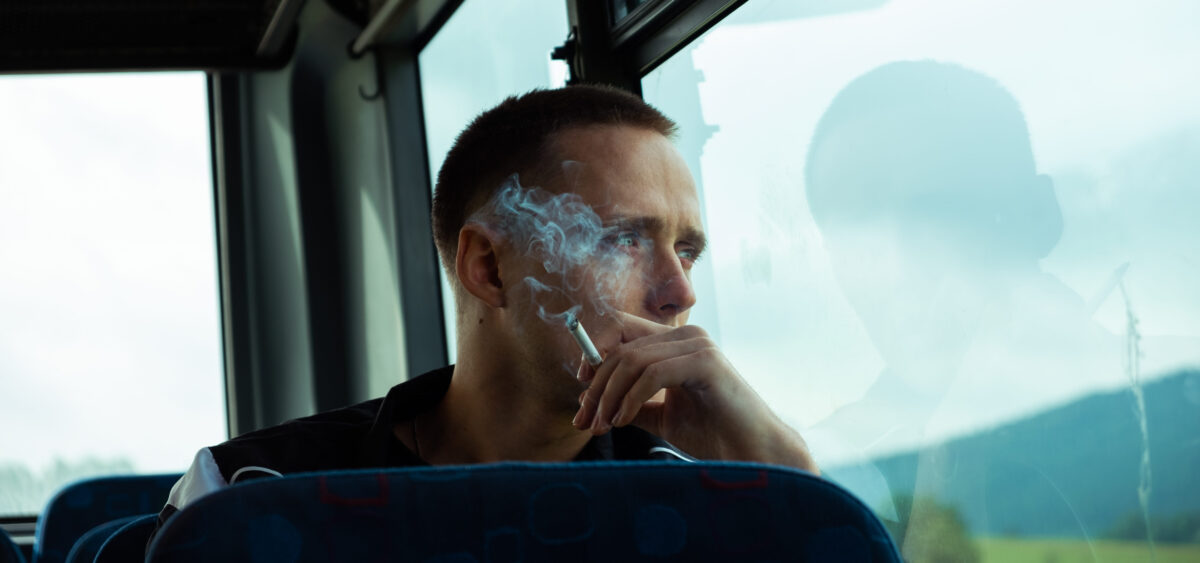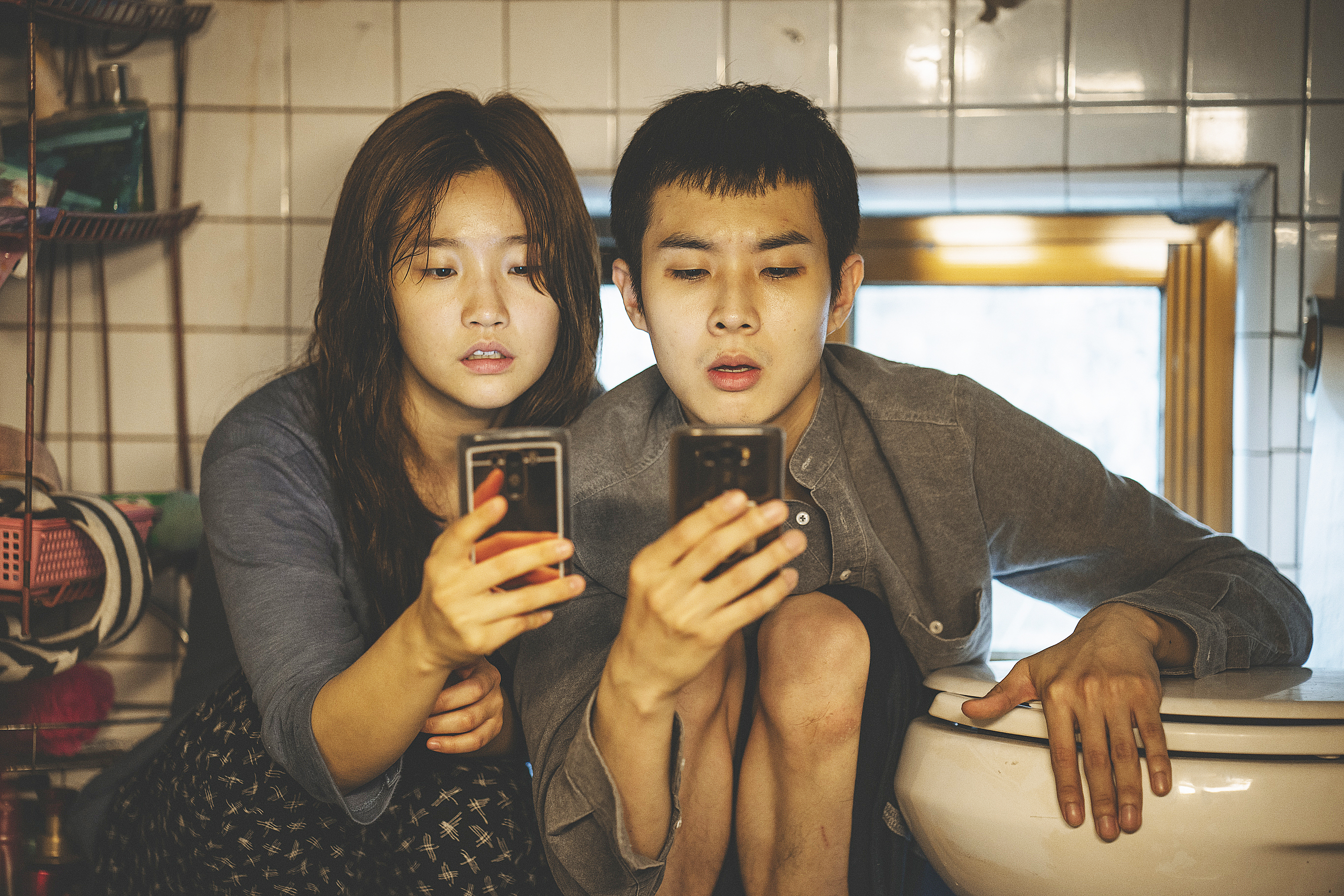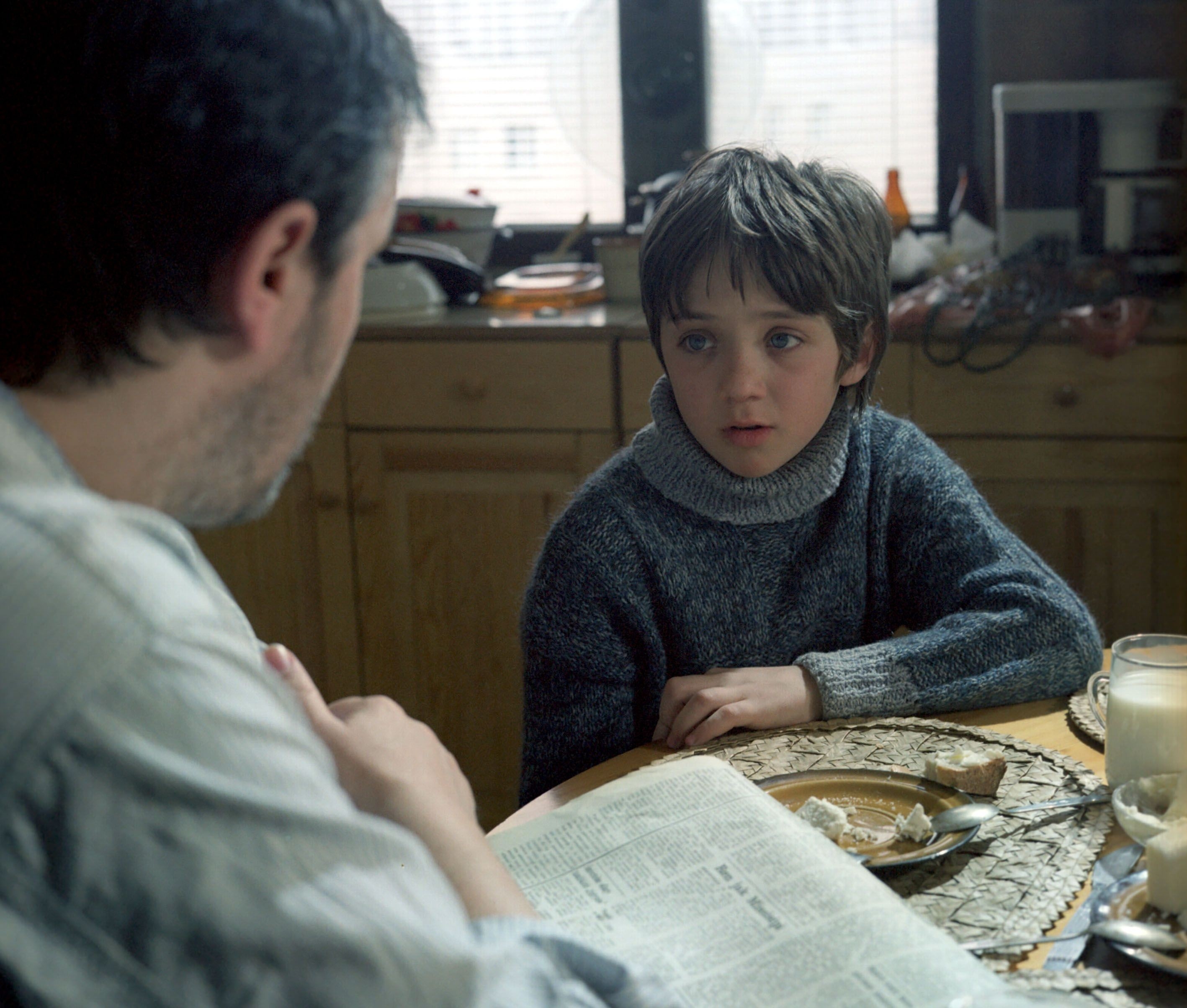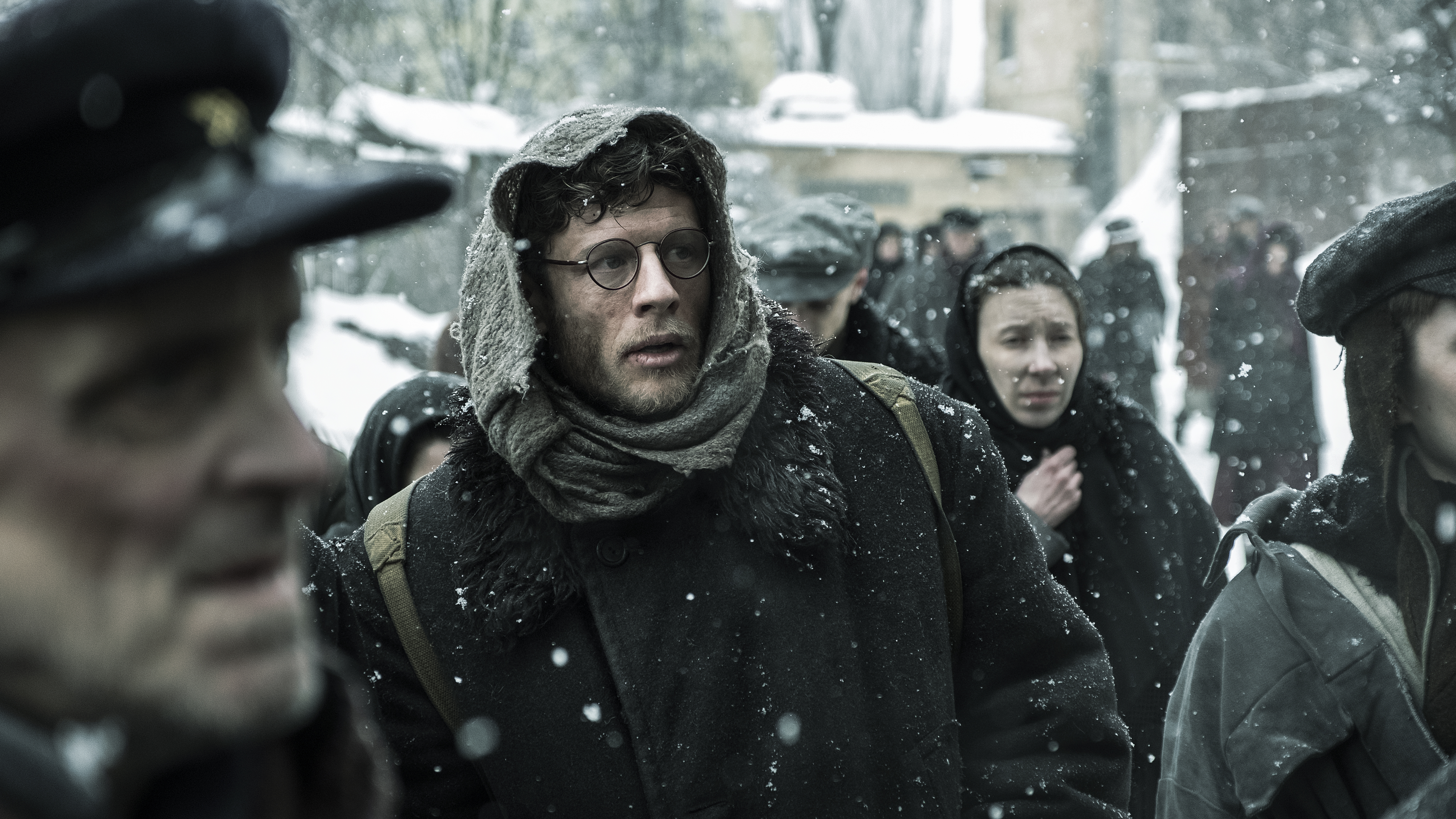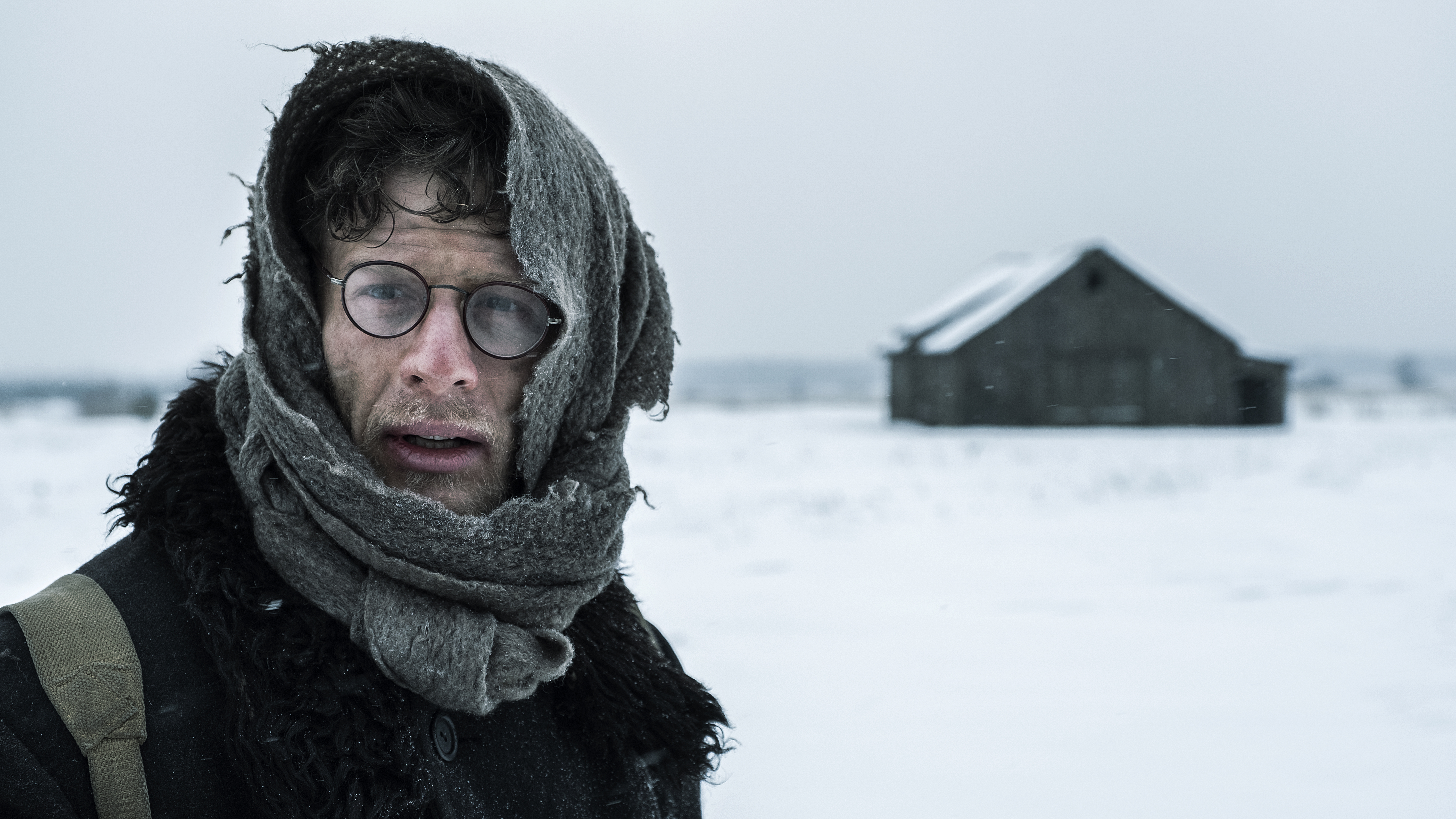
“We can do quite well in suffering; it’s a very comfortable condition,” Bartosz Bielenia says about his role as the character Daniel in Jan Komasa’s film Corpus Christi, Poland’s Oscar candidate. “Plunging into pain, into constant mourning and into never-ending tragedy can give you a lot of pleasure. Daniel tries to shake people out of this condition. He says: ‘Understand and forgive.’ That is – process it, forgive and let it go. He has a mechanism for it,” Bielenia tells Jan Pelczar.
Jan Pelczar: Daniel, the character you play in Corpus Christi, deceives people by pretending to be a priest, but he has inside him an openness that lets him do a lot of good. The audiences confirm it: we’d like to have that kind of priest.
Bartosz Bielenia: That’s nice to hear. That’s how we built that character. We wanted to show somebody who sincerely, on the basis of a system of values he saw somebody had, builds his own vision of the world, naive but also beautiful. And he shares it with other people. If it works, if it resonates with the viewers, if it brings joy and encourages reflection, that means we’ve achieved something.
To what degree is acting for you something like being a priest is for Daniel? You were seven or eight years old when you started to appear on the stage in Białystok. The inspiration for the figure you play in Corpus Christi – i.e. the hero of Mateusz Pacewicz’s reportage – was also fascinated with the church from childhood.
It’s true, I started early, and the fascination grew in me. There’s something like a mirror in the situations you describe. Maybe that’s why it was so easy for me to find myself in this character?
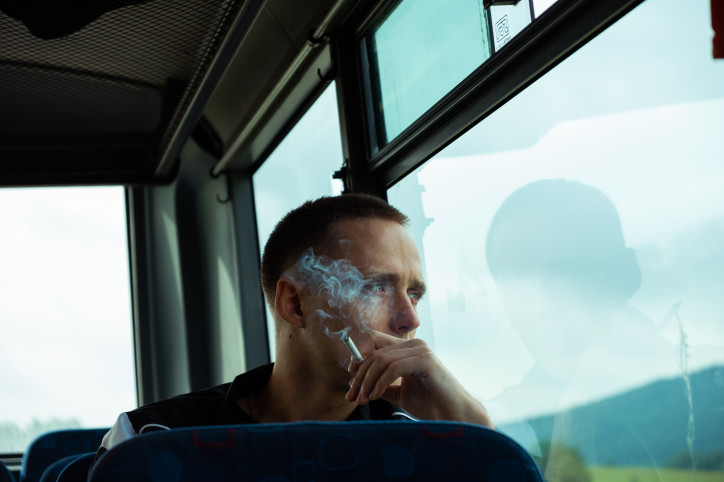
There’s a moment in the film where Daniel doesn’t want to give in to the mayor. He has no intention of giving up to the authorities easily. Does that also sound familiar?
There are many situations in the film that we can look into and wonder how we would behave. Daniel has rebellion against all authorities (and every form of coercion) encoded in his nature.
He doesn’t start impersonating a priest with premeditation. Fate tosses him into a new situation, and he tries to find himself in it, he takes up the challenge. As an actor you had a similar opportunity recently: in Krystian Lupa’s The Trial, you took on the role from one hour to the next. Your sudden standing in for a colleague astonished both the director, with whom actors work on roles for many months, and the rest of the cast, who were surprised by what a natural creation you built before you even knew the lines, repeating them onstage with a hidden earphone.
I never thought of it that way, but after all maybe you’re right. These are related situations. In both cases it’s about the ability to react in real time, on impulse, to what you encounter, a type of mindfulness and sensitivity. Standing in for The Trial was just as surprising for me as the moment was for Daniel when he could become a priest. I was just as sensitive on the stage as he was in the scene in the confessional, where he’s simultaneously hearing the confessions of the parishioners and checking the form for confession on his phone. And in the end this adventure also brought me great joy. When you started to ask this question, in my mind I had an answer ready along the lines of “that’s just my job, to step into somebody else’s shoes”, but you brought up The Trial, in which a huge role was played by surprise; the need to find yourself in a new role, towards new people. After a few months of rehearsals, it’s hard to be surprised, to have the impression that you’ve suddenly been thrown into a certain situation. Before going on the set of Corpus Christi, the rehearsals and meetings to discuss the text lasted four months. I knew the film was inspired by a true story, but I didn’t want to build my role on that story. I wanted to create an autonomous, living hero. From my body and my experiences. It seemed to me that would make it more realistic, a figure of flesh and blood.
The scriptwriter for Corpus Christi calls himself a Catholic atheist. What about you?
In this phrase from Mateusz [Pacewicz] I find something that contradicts itself. At this time, I haven’t found a precise description for myself. I’m seeking, interested and watchful. I’m not in the Church, and I don’t attend services. I tried to transfer my imaginings on the subject of the Prophet’s words, a message of love, into the role of Daniel. Love your neighbour as yourself. Love, acceptance, forgiveness. This trinity is important to me; I try to live with it in mind. Sometimes it works better, sometimes worse, but these values are present in my life. I try to fill my life with love.
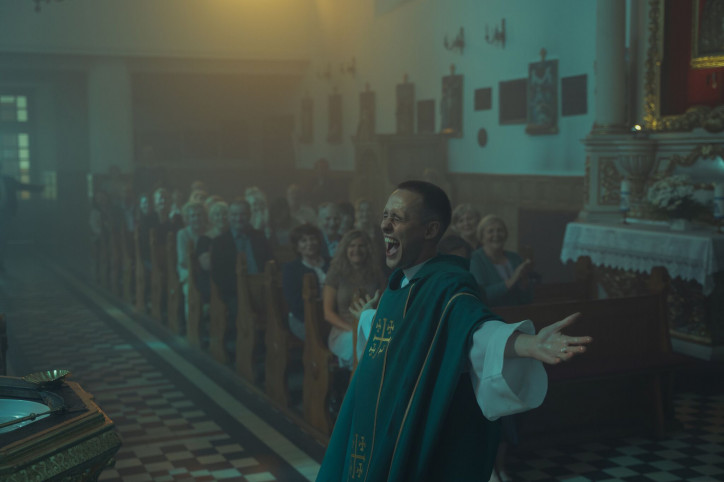
Did you add something from yourself to one of the sermons in the film?
To all of them. We also worked on the language, so it would be as little literary and liturgical as possible, and the closest to a simple statement flowing from the heart. Some of the corrections came in rehearsals, some on the set. Sometimes we changed something after the first takes. The work on the script was very dynamic, creative and cooperative.
There was something removed from the script about a wrecked car that was left by the church with pictures of the victims. The scene may provoke associations with another crash [the 2010 Smolensk air disaster, in which 96 Polish dignitaries, including the then Polish president, died, and which has since been the subject of various conspiracy theories – ed. note], which divides not only the local community, but also Polish society…
On the set I didn’t think about that at all. I heard about that interpretation only when we started to talk with journalists. There’s an accident, a conflict, an attempt to forgive and reconcile, but most of all it’s about an attempt to deal with pain, to break free of it by getting away from cultivating your own suffering. We can do quite well in suffering, it’s a very comfortable condition. Plunging into pain, into constant mourning and into never-ending tragedy can give you a lot of pleasure. Daniel tries to shake people out of this condition. He says: “Understand and forgive.” That is – process it, forgive, and let it go. He has a mechanism for it. He himself had to do this with his past. I don’t think he’d wonder or scheme how to help, how to heal. He’s backed by a lesson that flows from his own experience. You have to come to terms with the past, whatever it is, and for the future, come together in love.
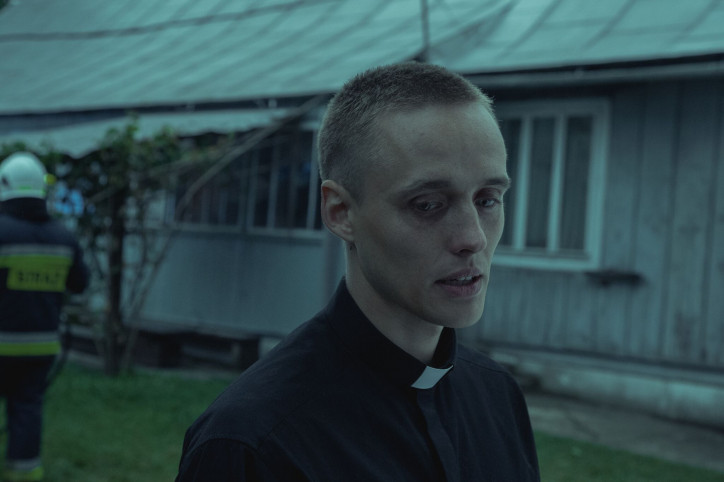
There hasn’t been a lot of this kind of searching in Polish cinema. In similar scenes, the narration most often turned toward social problems, not spirituality.
Maybe we didn’t talk about it much because it was hard to address the subject without getting tainted by subjects related to evaluation of the Church as an institution, and not a community. Maybe we needed more distance to this. I didn’t look at our film – and I still don’t – through the prism of the institutional Church. Daniel’s perspective is the view of somebody who had only one model, and his imaginings on the subject of that model reflect in him like an echo, and are transmitted to others by him. Whatever this role model would be, Daniel would try to cultivate it. Packing it in the structures of the Catholic faith only strengthens Daniel as a character. After all there’s a strong, seductive, coded symbolism. The ritual itself has a very performative dimension. This give my hero credibility in his need for acceptance. He receives it for a moment when donning the costume of a priest. The film concentrates on the person and on his experience; the rest is the context, which we understand without great difficulty. The world built on the set by the directorial vision of Jan Komasa, the aesthetic of cinematographer Piotrek Sobociński, Marek Zawierucha’s scenography and Dorota Roqueplo’s costumes isn’t a portrait of Poland. It’s a picture of a certain society. And the international resonance that our film sets off shows its universal character. That gives me great pleasure.
You’re now facing the Oscar campaign. The Polish candidate has outstanding competition, ranging from Pedro Almodovar to Bong Joon-ho. Which of the masters would it be your dream to meet?
My absolute, unquestioned master is David Lynch. The last season of Twin Peaks hit me like a thunderbolt. I often return to it in my thoughts. Lars von Trier’s last film, The House That Jack Built, captivated me with its structure and its sensitivity to the human; paradoxically, there’s a great deal of it.
And which actors?
I always loved Robin Williams. He was very important for me. I suffered greatly when I learned of his suicide. He had within him both great sadness and great joy. As a child this captivated me. I was in love, I watched everything he played in, not questioning the artistic value. He’s the first person who comes to mind, and after that it’s a long way to second place. I carry that actor in my heart.
Was his stand-up part of the fascination?
More the films. In that type of comedy, I prefer other artists. Ricky Gervais, for example – for me he’s an important phenomenon. His hosting of the Golden Globes was very important. It’s hard to overestimate what that man has done for the industry, and for a common awareness of people who are stuck in their information and identity bubbles. Watching his latest series, After Life, I sobbed and laughed at the same time. It’s been a long time since I cried over anything like I did over that comedy series. And Robin Williams is also the interviews. As he described it: voluntary Tourette’s syndrome. An eruption of fantasy, imagination, jokes and distance. I remember the presentation of the 2002 Critics’ Choice Awards. Williams was nominated for One Hour Photo, and next to him Daniel Day Lewis for Gangs of New York and Jack Nicholson for About Schmidt. Day Lewis and Nicholson tied, but they invited Williams onto the stage. He stole the show. As one of the nominees who was left without a prize, he thanked everybody “for nothing”. He stressed that for him it was a very “Buddhist” evening – he came with no expectations, and he left with nothing. On the one hand, Robin Williams had great distance to himself and to the world, and on the other hand a love that he tried to portray on the screen. Maybe that’s why I feel such a closeness to him.
Parts of this interview have been edited and condensed for clarity and brevity.
Translated from the Polish by Nathaniel Espino


